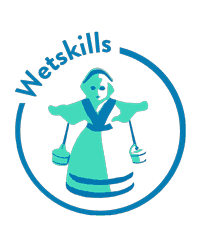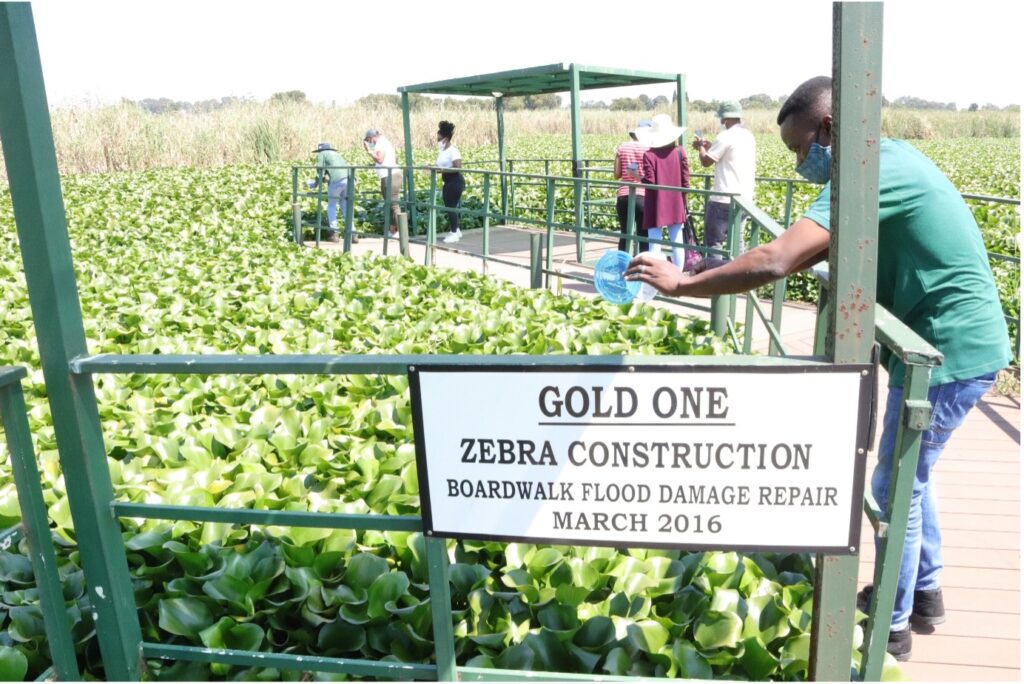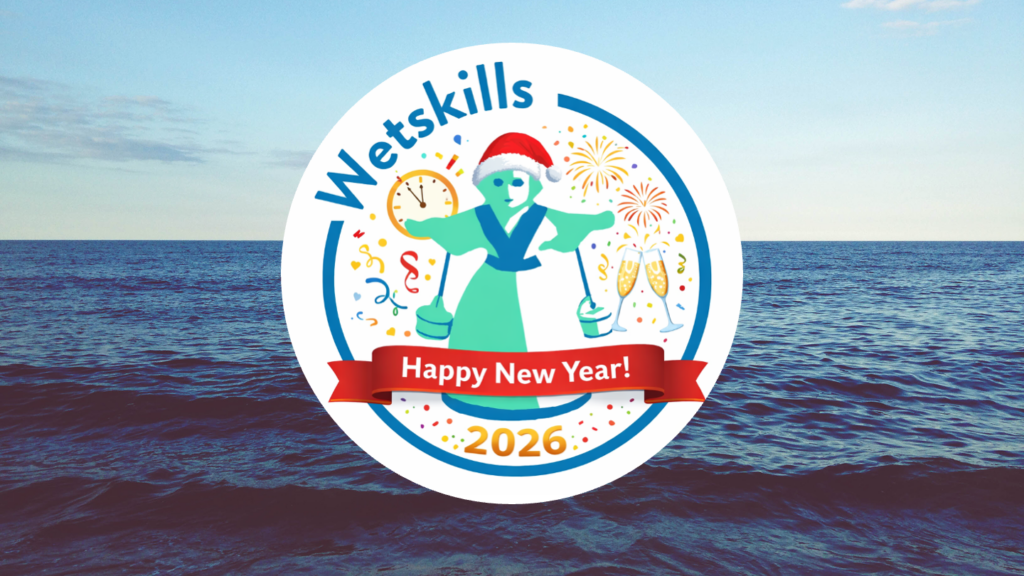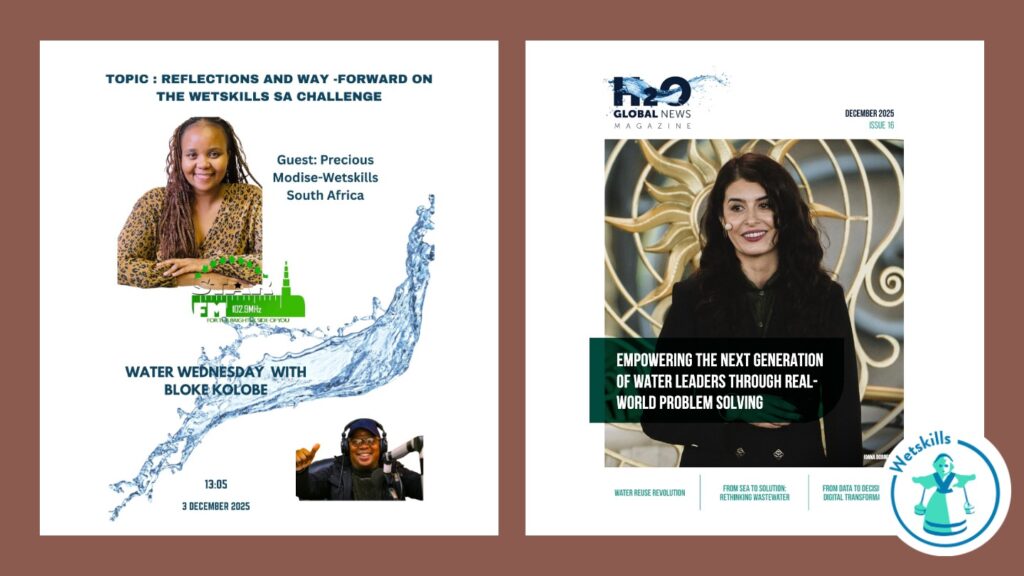W@tskills South Africa 2021 by
Sharon Setshedi, Masha Makgwale, Wendy Dube (South Africa) and Sebastiaan Haverkate ( Netherlands)
Day 5: Communication style – Pitch & Poster
On the fifth day of the Wetskills competition, we were launched into the program with a cheerful reflection session. In the session, our supervisors (facilitated by Phomolo Khonthu) asked us to reflect on whether assigned groups were working well and if we had a good understanding of the cases we were working on. The session was then followed by a presentation done by Ms Nobulali Mtikitiki from the Department of Water and Sanitation on bursaries in the water sector. The presentation was very informative and gave insight on the available opportunities. We were then trained by our supervisors (Ioana Dobrescu and Peter de Jong) on how to present an effective 2-minute pitch as well as creating a winning poster. A creative presentation accompanied this training session, and this made the information very easy to grasp. Once these sessions were adjourned, participants broke off into their assigned groups to work on their cases. Upon reflection, this was one of the most memorable days because the presentations were fun and quite interactive.
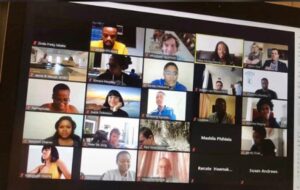
Day 6: Work on Cases
A word that reminds us of the bees in the field, became a word which means that a new day has started. At 10:00 a.m. (GMT+2) the first of numerous meetings starts. Twenty-five sleepy faces in twenty-five rooms say good morning to each other. After a quick briefing, the regular work starts. Zoom meeting with the case-owner, zoom meeting with an expert, Zoom-meeting in order to create a report, zoom-meeting for a poster, zoom meeting, zoom meeting….zoom zoom zoom… : at least 8 hours on a regular day. Only a few weeks ago we would be horrified by the idea to have to do something like that. However, once you’re absorbed into the program there is no way back. Daily deadlines seem to provide us a new boost of adrenaline again and again. Over the past days, our solutions started to become more and more clear. The very strong thought appears; we’re getting something done that will improve the water sector in South-Africa. And we are not alone: 10,000 kilometres away, our team mates are working with us on the same challenge.
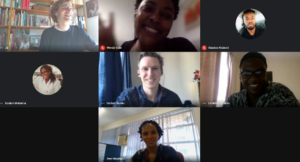
You even start to get emotionally bonded to these small tiles on your screen. And we know what to do: …
……zoom zoom zoom….
Day 7: Getting to know other Team’s cases and field trip on a sunny day.
This day was all about knowing what the other Teams’ innovations are all about. We got to learn more about other cases and what they entail. We had so much fun and gained some knowledge on how others are handling their cases. Advises and more ideas were also thrown in and we got to also learn other people’s personalities.
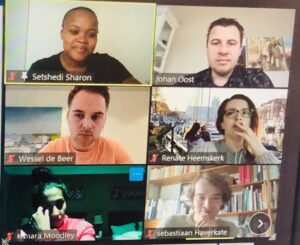
The most important lesson for this day is that people didn’t take offence when they were rectified or given different views on their cases; after all, we are all here to learn from each. Doing Wetskills online is not as bad as we thought it will be. We are glued to our laptops 24/7. Some have network problems sometimes; some are hungry before lunch at times hahaha … but we move.
Team 3 members went to the site to get a clear picture of the case they are working on.
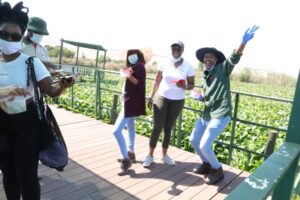
Everyone was very excited about the field trip that the team organized to the Blesbokspruit wetland. It was a 1 hour drive to the site which happened when we were in the plenary. Masha said that they enjoyed the drive very much as a team and they had much time to socialize and know each other better in the car. “We had some good laughs also,” said Masha.
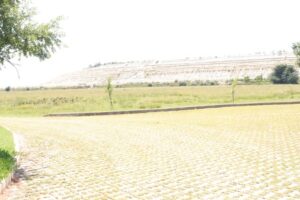
Masha explained that when they got to the site, the first thing they could see were mine dumps surrounding the wetland, cow’s grazing around and sewage spill right at the gate of the wetland.
“Our hearts sank, the amount of pollution taking place there was too much,” said Masha.
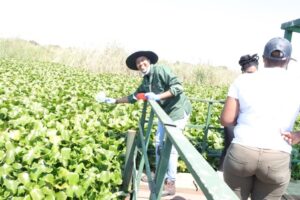
The team got a chance to ask questions about the different methods the case owners tried and the effect that each method did on the water hyacinth. One method (biological method) that they were using on that day was spreading insects on the water hyacinth to help weaken it. They even let the team spread the insects on the water hyacinth.
